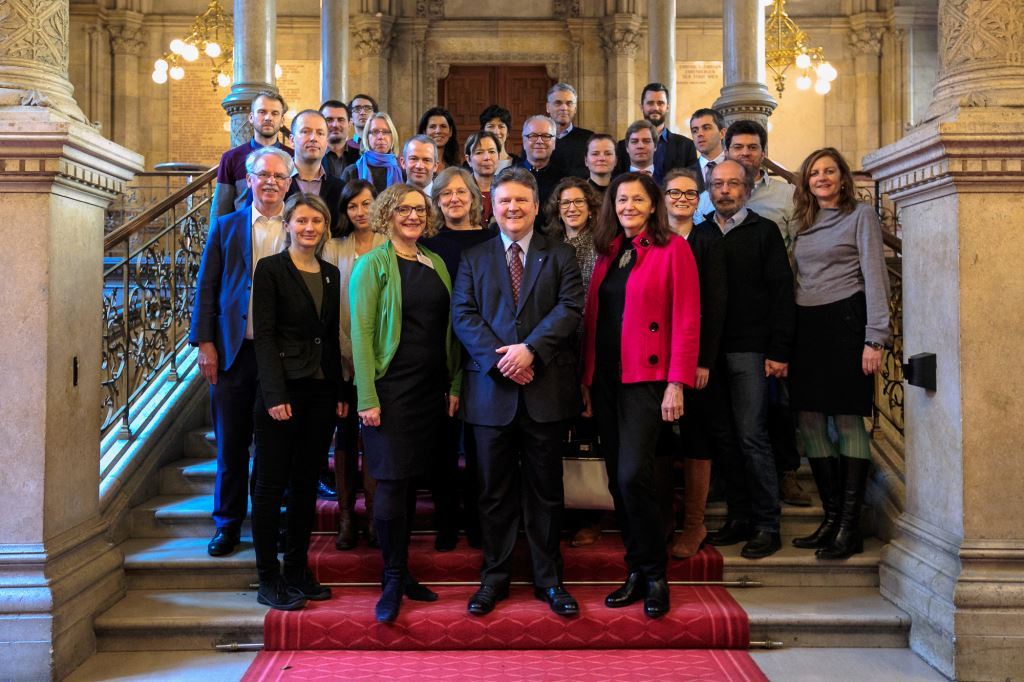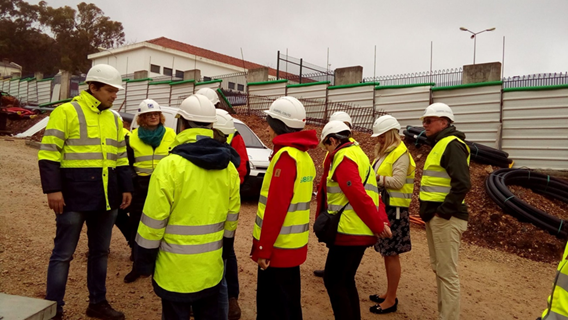
Enhancing Affordable Housing in EU Cities: the Impacts of the UAEU Housing Partnership
Why housing is still a priority for the EU
As cities face rising populations, escalating property prices, and growing inequality, the need for affordable, accessible, and high-quality housing has become more pressing than ever. Since the establishment of the Urban Agenda for the EU (UAEU) Housing Partnership in 2015, the housing crisis has not only intensified but also evolved, affecting a broader spectrum of population groups across different income levels.
According to Eurostat's housing statistics from 2023, house prices increased by 47 percent in the EU between 2010 and 2022; there is also significant and growing investment gap in social and affordable housing. Furthermore, in the EU in 2022, 9.3% of the population did not have the ability to keep the home adequately warm.
Over the past few years, initiatives like the Housing Partnership have highlighted the importance of a coordinated approach to housing. As outlined by Michaela Kauer, co-coordinator of the Housing Partnership, “there cannot be any one size fits all programme to serve all the housing needs, as the diversity of housing strategies, shaped by unique local histories and socio-economic conditions, is one of Europe's greatest assets. However,
what Europe can and must do is to tackle the dangers of financialisation and touristification of our housing markets. On this, we would need a strong protective shield for our citizens’ housing needs, for our local economies.”
UAEU Housing Partnership: key results and long-term impacts
The Housing Partnership was one of four pilot partnerships launched under the Urban Agenda for the EU at the end of 2015. Its primary goal was to improve knowledge and enhance legal and financial conditions for EU cities, enabling them to invest in both new and renovated affordable housing for their populations.
Within its three-year mandate from 2015 to 2018, the Partnership defined 12 concrete actions and a set of comprehensive recommendations for housing policy development, all of which have been outlined in the Action Plan.
These include, for example, a proposal to reform EU state aid law to enable more investment in affordable housing and a call for regular meetings of EU housing ministers. The Partnership also advocated for stronger protection for tenants at risk of losing their homes due to renovations and emphasised the crucial role of gender in housing affordability and energy poverty.

Partnership meeting in Vienna on 16th December 2016
The Partnership also developed several action strands, including tools for cities such as an IT database, a guidance brochure and city-to-city exchanges. It provided recommendations to improve the EU urban housing market database, and, at the institutional level, formulated actions addressed to the European Commission (such as a monitoring system for affordable housing in the EU) and Member States (including the establishment of Housing Focal Points and informal meetings).
One significant recognition of the Partnership's work came from the European Parliament, says Michaela Kauer, when it adopted its own-initiative report on decent and affordable housing in January 2021. Another important milestone occurred in March 2022, when, for the first time in nearly a decade, EU housing ministers met again in Nice under the French EU presidency.
From a broader perspective, “the Housing Partnership has achieved three major successes,” Kauer highlights. “Firstly, it has firmly placed housing on the agenda of European decision-makers, who had long avoided the issue, as it is not an EU-level formal competence. Secondly, it has created a sustainable community – not just of institutions and organisations, but of people - committed to finding solutions for affordable housing that benefit both people and the planet. Thirdly, it has contributed to improved legislation, concrete projects at both European and local levels, and advancements in research and knowledge management.”
Ongoing initiatives and recent developments at the EU level
The results and recommendations of the Housing Partnership contributed to shaping the “Affordable Housing Initiative”, announced in the European Commission's Renovation Wave strategy. This initiative aims to pilot the renovation of 100 lighthouse social and affordable housing districts, focusing on:
-
An integrated approach that combines energy efficiency as a prerequisite with innovative digital, sustainable and human-centred technologies. It also promotes social innovation and frameworks that empower residents through co-investing and resident-owned services.
-
A district-level approach that leverages economies of scale to transform entire neighbourhoods, creating new business opportunities.

Partnership meeting in Lisbon on 22-23 March 2018
Other EU-level initiatives have also emerged, such as the creation of URBACT Knowledge Hubs, research on the financialisation of housing in EU cities, including the “Who owns the city” study by the Joint Research Centre (JRC). Thanks to these efforts, we now have better knowledge on housing issues across the EU, with the Housing Partnership and its members having made substantial contributions to this progress.
Solutions for “Adapting and transforming buildings for affordable housing solutions” were also proposed by projects funded under the first EUI-Innovative Actions Calls for Proposals, launched in October 2022, in support to the New European Bauhaus demonstrators. A notable example is the “AHA - Affordable Housing for All’ project.
The AHA project, promoted by the city of Budapest, is dedicated to achieving ‘Affordable Housing for All’ through an integrated approach that not only increases the supply of affordable housing but also provides new solutions to support people at risk of housing exclusion. A central component of the project is the transformation of an unused non-residential public building into energy-efficient social housing. Additionally, a data-driven early warning mechanism is being developed to identify households facing rental arrears and energy poverty to enable new support services to be tested.
Looking ahead: progressing in affordable housing
Calls for action on European level have long addressed many European work strands on different levels. However, it is only now, amid growing concerns about competitiveness, that we are seeing significant movement at the highest political levels.
In her second-term guidelines, President Ursula von der Leyen emphasized the need for a Europe-wide affordable housing plan to attract more private and public investment. The plan also aims to update the State aid rules to facilitate housing support measures, particularly for affordable, energy-efficient, and social housing.
Looking ahead, the co-coordinator of the Housing Partnership recommends focusing on three key areas:
-
Legislative changes: It has become clear that leverage must be delivered regarding EU state aid definitions to broaden the scope of the narrow target group from social to affordable housing.
-
Funding: There should be efforts to make funding sources more accessible to local and regional authorities. Housing must be explicitly included in the next Multi-Annual Financial Framework. This includes better integration of various funding sources and the development of revolving funds to ensure that public investment remain within the system.
-
Improved indicators: Developing and utilising improved indicators, including gender-disaggregated data, is essential for effective monitoring and policy design at all levels. These indicators will provide a solid foundation for informed decision-making.
Drawing on Austria's non-profit housing system, recognized by the OECD as a best-practice model, Michaela Kauer views a commitment to state intervention and a comprehensive system offering diverse housing options as essential components of the response to the housing crisis:
“It is evident that a clear commitment to strong public intervention helps to counter the effects of unleashed markets. This is the kind of courage to protect our housing markets that we need on European level now. And this is what we should expect from an EU Commissioner on Housing.”